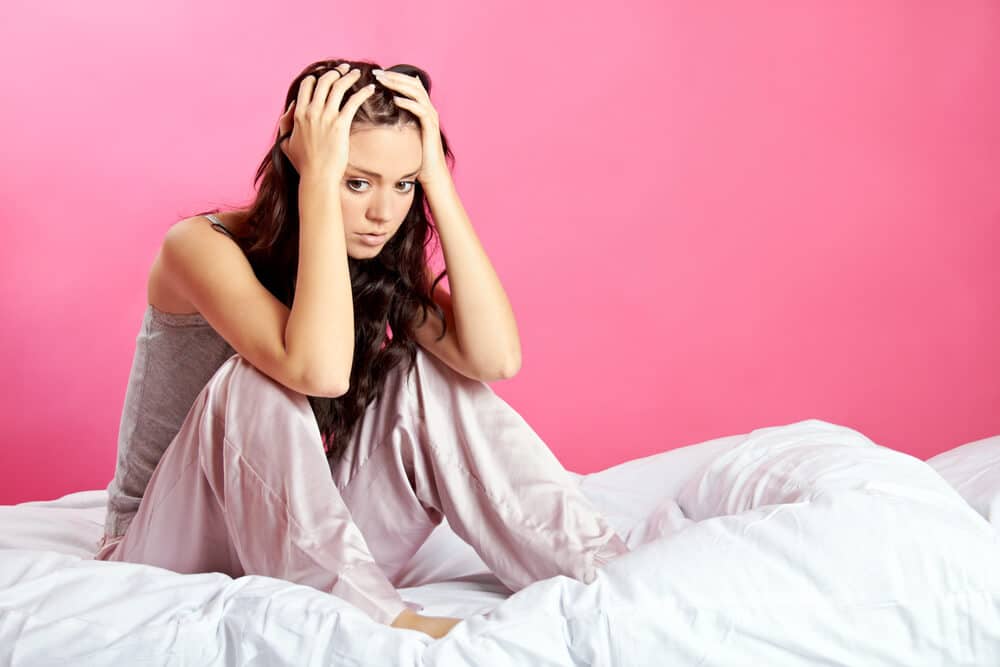A full night of sleep means we can feel refreshed and ready to start our day. Conversely, a poor night of sleep can mean lots of crankiness and fogginess. But what if you consistently suffer from poor sleep or don’t get enough of it? Now you’re looking at an increased risk of some serious health concerns like high blood pressure, diabetes, and stroke. Unfortunately, about 1 in 3 adults in the United States do not get their recommended 7 hours of sleep per night on a consistent basis.[1]
Getting enough sleep can be especially difficult if you suffer from anxiety, a condition that affects millions of people in the States every year. So, just what is the relationship between sleep and anxiety? And if you suffer from anxiety, how can you best improve the quality of your sleep?
If you feel like you’re having trouble sleeping, take our insomnia test.
What Happens When You Sleep?
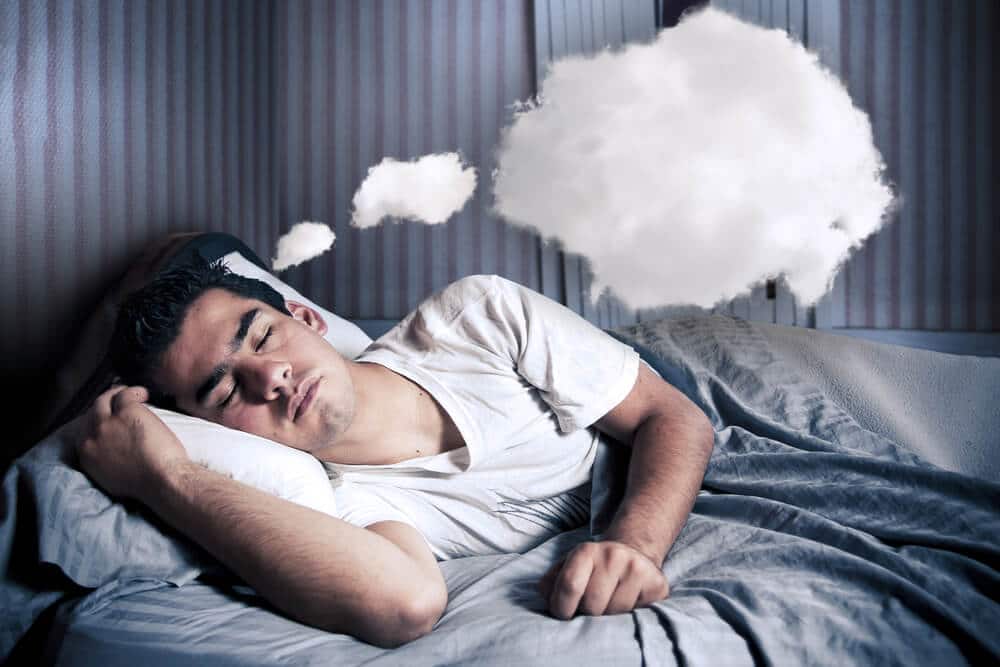
Before we can discuss the relationship between sleep and anxiety, we first need to talk about sleep itself. So, just what happens when you fall asleep? Let’s take a closer look.
The Sleep Cycle
Your sleep is divided into sleep cycles. A single cycle lasts roughly 1 to 2 hours, with most being around 90 minutes long. You experience around 4-5 complete sleep cycles when you get a full night’s rest.
What’s in a sleep cycle? A single sleep cycle is composed of alternating periods of non-REM sleep and rapid eye-movement (REM) sleep. Non-REM (NREM) sleep is also known as slow-wave sleep (SWS). REM sleep is the stage where we most often dream; it is so named because our eyes tend to move during this stage.
NREM Sleep/SWS
The American Academy of Sleep Medicine (AASM) divides SWS into three distinct stages, with each stage being a deeper state of sleep than the last. The last stage is known as deep sleep. It’s much harder to wake up from deep sleep than REM sleep, and when you do, you tend to feel much groggier. Your heart rate and body temperature also drop the deeper into the SWS stages you go.
REM Sleep
REM sleep is the stage of sleep where we experience the most dreams. When we enter this stage, our brain chemistry changes. Noticeably, REM means lots of the neurotransmitter acetylcholine and next to no histamine, norepinephrine, or serotonin. We also don’t regulate our body temperature well at this point in the cycle.
Stages of Sleep
AASM establishes the following standard sleep cycle:
NREM1 —> NREM2 —> NREM 3 —> NREM 2 —> REM —> Brief Period of Awakening.
Note here that there’s a period of wakefulness after REM; it’s quite brief and a normal part of the cycle.
Your Body on Anxiety
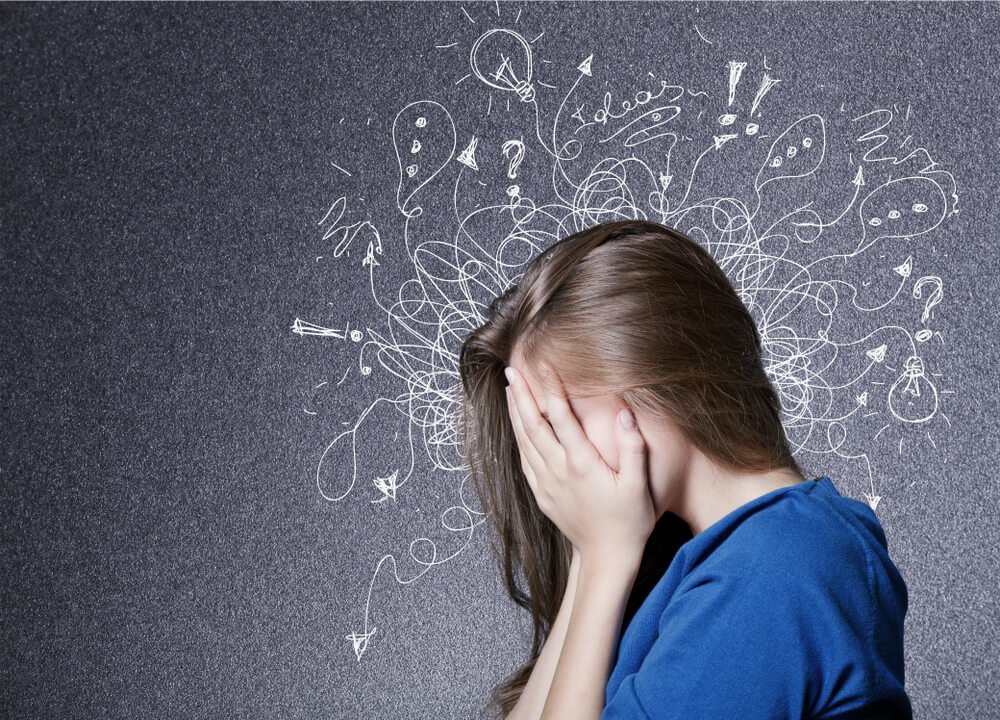
Anxiety is no joke. A serious condition that affects millions of U.S. citizens every year, it can impact all parts of someone’s life. Bouts of anxiety and stress can lead to not just nervousness, but physical responses like elevated blood pressure, increased heart rate, and a flood of hormones like cortisol. Notably, research has linked elevated levels of cortisol to serious health concerns like obesity and disturbed sleep.[2]
Anxiety + Sleeping = No Fun for Anyone
The relationship between anxiety and sleep is a vicious one. If someone suffers from anxiety, one of their key symptoms may be fatigue or trouble sleeping.[3] This lack of sleep, in turn, can heighten their anxiety, which makes falling asleep even harder. Likewise, those with initial sleeping problems may develop stress and anxiety issues.[4] All in all, having both anxiety and sleep issues simultaneously can lead to a worsening of both problems.
How to Get Better Sleep When You Have Anxiety
Fortunately, there’s plenty you can do to potentially improve your sleep if you suffer from anxiety (or vice versa), including:
Get Professional Help

Anxiety is incredibly common and also incredibly treatable. Unfortunately, experts estimate that only about a third of people who suffer from anxiety in the US seek professional help for their condition.[5] If you’re in that majority that doesn’t seek professional help, do. Having a professional work with you to get this condition under control may not only help improve your sleep, but your overall quality of life. (For help finding therapy and low-cost treatment in your area, you can go here and here.)
Take Medications in the Morning
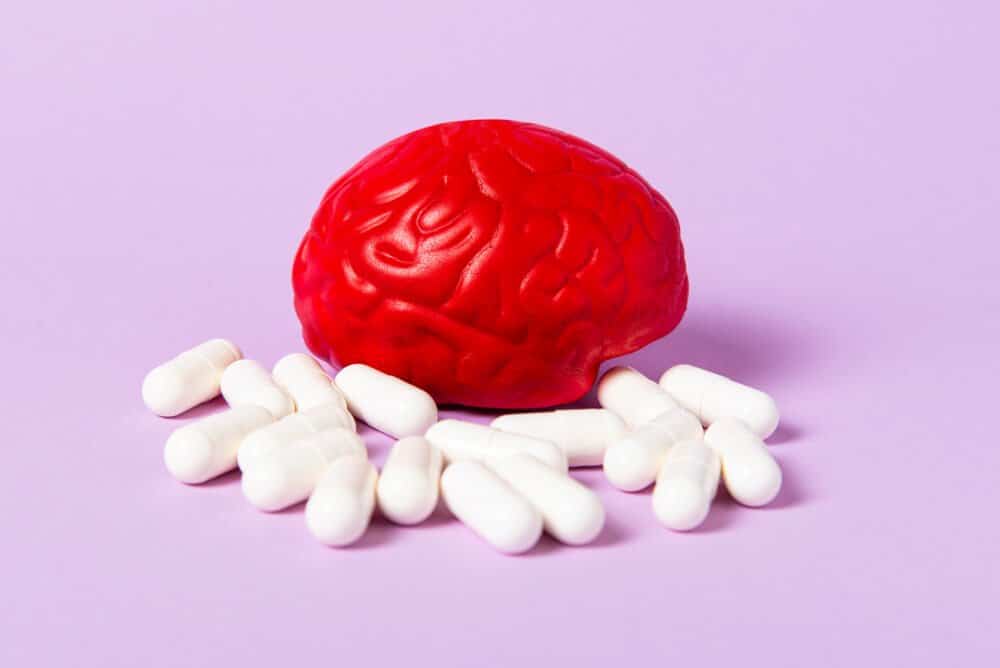
When you’re laying in bed for hours completely restless, it can take a toll on your body. Many people take antidepressants like SSRIs or SNRIs to help manage their anxiety symptoms. However, certain antidepressants are known to negatively impact sleep for some people. If you take one of these drugs—and you take it at night—talk to your doctor about taking it when you first wake up instead.
Why? Let’s break it down.
It’s All in the Brain Chemistry
Reuptake inhibitors like SSRIs and SNRIs inhibit your brain from reuptaking, or reabsorbing, certain neurotransmitters like serotonin and norepinephrine. By preventing reuptake, more of these neurotransmitters stay in your brain. This may allow for certain neurotransmissions that may help alleviate the symptoms of certain conditions like depression and anxiety.
Now, remember our talk about REM sleep. In order for this stage of the sleep cycle to occur, you need low or absent levels of certain neurotransmitters like serotonin and norepinephrine. Because of how reuptake inhibitors work, these neurotransmitters can stay in your brain for longer periods of time. That all means that taking reuptake inhibitors—especially right before bed—can disrupt your sleep cycle due to elevated levels of certain neurotransmitters.
So, by taking your medications in the morning (with a glass of water!), your body has time to properly bind these neurotransmitters before your bedtime. This means you can reap the benefits of your meds with a lower risk of them disrupting your sleep. Win-win.
There Are Limits to this Method
This method won’t work for everyone, though. Those who take slow-release medications, for example, might not find this method helpful. Furthermore, those who just started a new medication might be particularly susceptible to insomnia or disturbed sleep. While you should always address concerns about side effects with your doctor, know that many common side effects of antidepressants tend to lessen or completely go away after an initial adjustment period.
Limit your Caffeine Intake
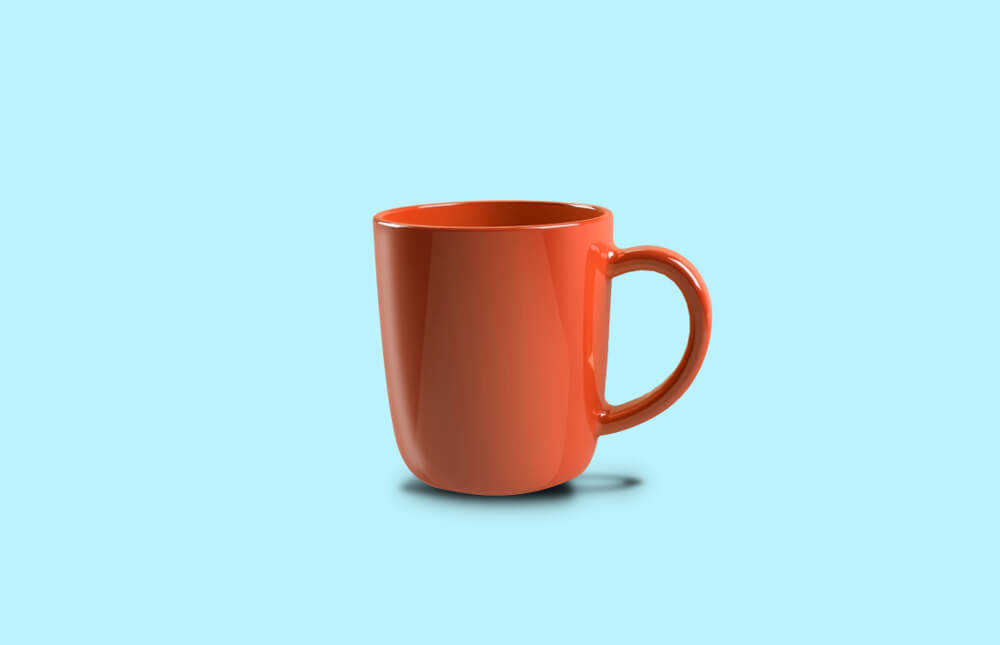
We know—coffee is amazing. But it’s beneficial to keep caffeine intake to a minimum. It’s no secret that excess caffeine may harm sleep quality. It’s also no secret that caffeine can elevate anxiety levels. A real double-whammy. You don’t have to completely cut your favorite coffee or tea out of your diet, but it’s always important to enjoy it in moderation earlier in the day.
Reduce Screen Time at Night
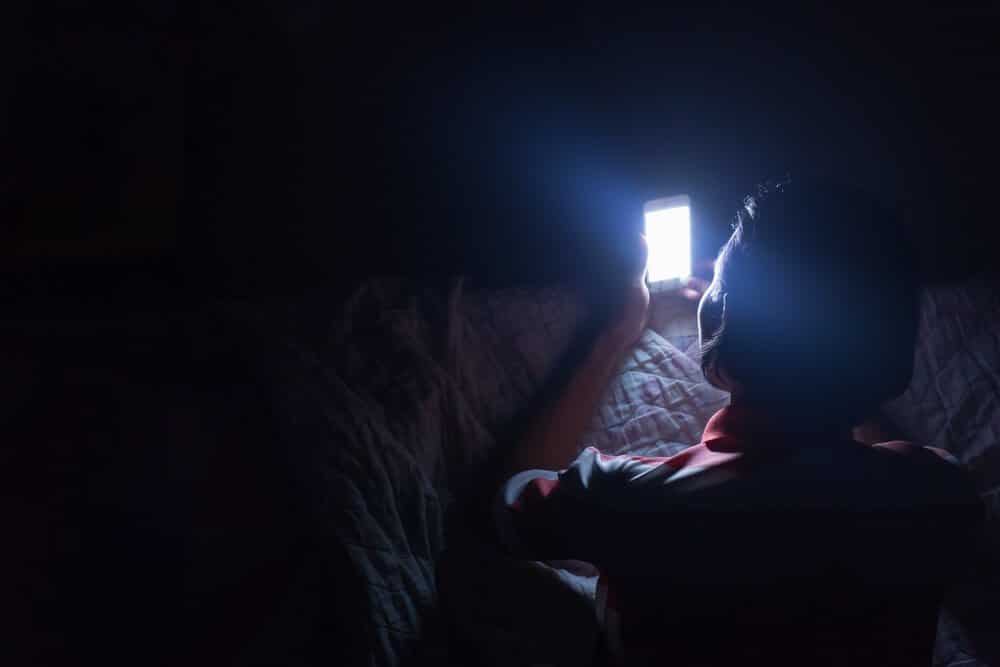
At the risk of sounding like your mom, you should probably put your phone down. Why? Your phone emits lots of light, which may disrupt sleep.
Why might light exposure late at night harm your ability to rest? Well, our bodies produce melatonin—a hormone that makes us drowsy and regulates sleep—when there’s less light out. That means we’re naturally inclined to get drowsier at night when it’s darker, as this usually indicates that it’s time to rest. Smartphones and similar light-emitting devices may mess up that natural inclination.
Some studies suggest that exposure to light sources right before trying to rest can negatively impact sleep quality. How? You probably guessed it: because the light exposure results in reduced levels of melatonin.[6,7,8] In other words, using a smartphone late at night can trick your brain into thinking that it’s not time to sleep, so the brain doesn’t release melatonin when it should. So, even if you’re exhausted, using your smartphone at night sends your body mixed signals that can interfere with falling and staying asleep.
Sleep in a Cooler Environment
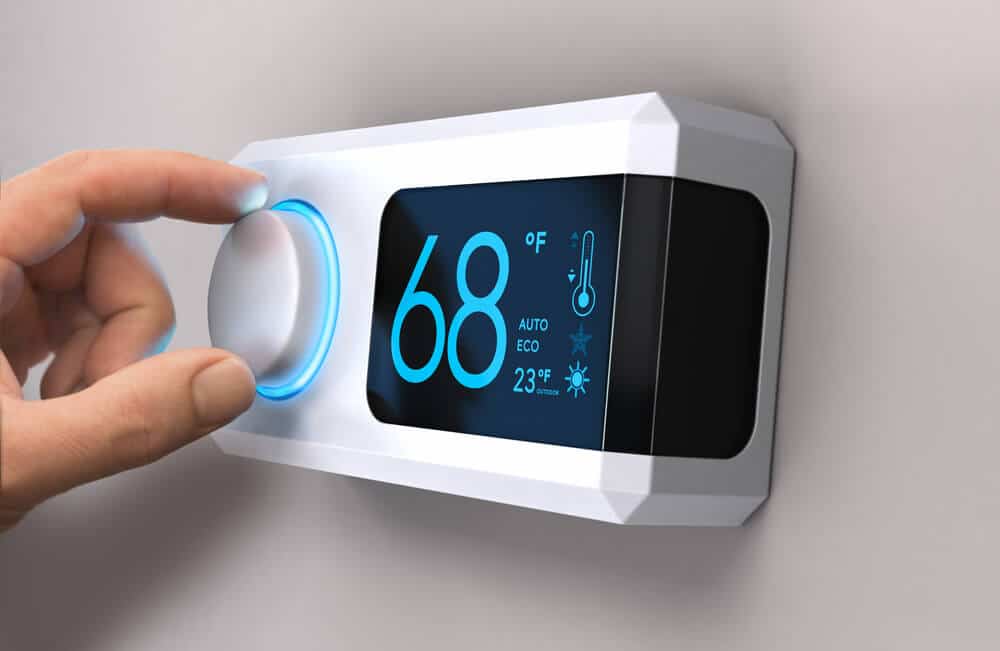
You’ve probably heard that sleeping in cooler rooms helps you sleep better. You’ve also probably experienced firsthand how hard it is to sleep when you’re too hot. Science backs these experiences up.
Studies suggest that we are particularly sensitive to external heat when we sleep (or try to).[9,10] In fact, one researcher even notes that those who suffer from insomnia tend to have higher body temperatures right before they try to fall asleep.[11] So, it seems that our bodies simply have a harder time regulating sleep when we’re warmer.
A weighted cooling blanket might be especially helpful if you suffer from anxiety. After all, many people find the weight of a heavy blanket comforting. However, these blankets can quickly overheat. To remedy overheating, some manufacturers have created weighted blankets that contain gel, glass beads, or another cooling feature. This type of blanket may help you stay cool while also helping to alleviate your anxiety.
Squeeze in Some Exercise
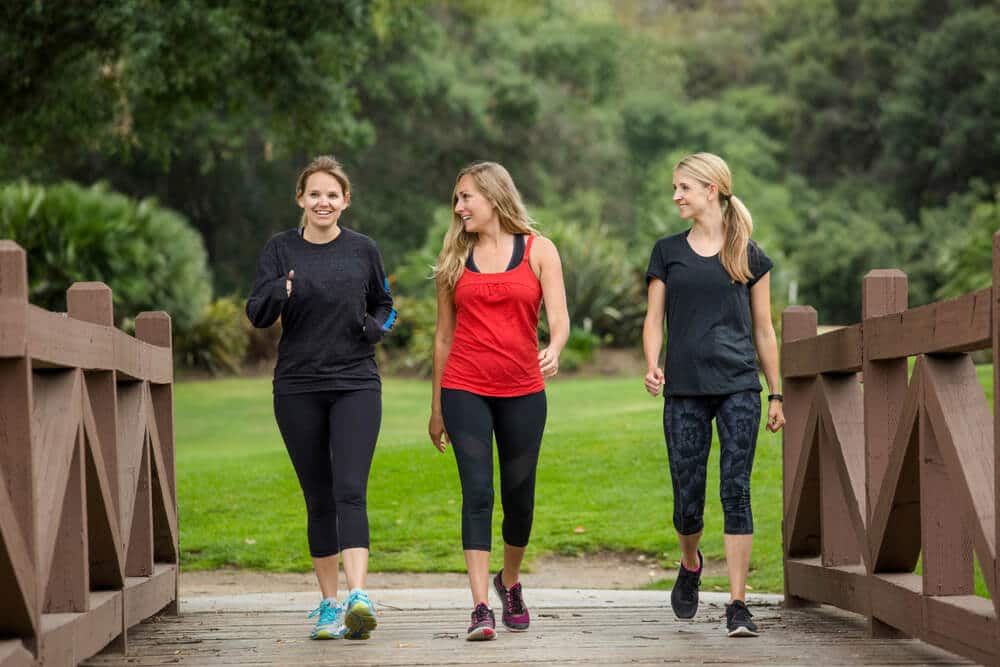
It’s hard to squeeze in time for exercise, but it’s still important to do so. Regularly exercising can offer benefits that include improving sleep quality[12] and alleviating some symptoms of anxiety.[13] Even moderate exercise for just 30 minutes 5 days a week can make a difference.[14] That’s right: you don’t have to transform into a gym rat to reap the rewards of exercise.
What’s most important is to perform activities you enjoy at a time that works best with your current schedule. This way, you’ll be more likely to create and stick to a consistent routine. (Just make sure the time you choose is no later than a few hours before you plan on sleeping.)[15]
Final Thoughts
There’s no one “best way” to deal with anxiety or sleeping problems. Treatment, after all, will vary by individual. The most important first step in dealing with either of these issues? Talking to your doctor. Together, you can craft a plan tailored your unique situation.
Terms
- American Academy of Sleep Medicine (AASM): A professional medical society that has dedicated itself to promoting better health through optimizing sleep since 1975.
- Cortisol: A hormone that is normally secreted by the human body. Individuals with anxiety may experience a release of extra cortisol, which can lead to unpleasant side effects like disrupted sleep cycles.
- Melatonin: A hormone our body produces to help regulate the sleep cycle.
- Rapid-eye movement sleep (REM): This part of the sleep cycle is the stage where we most frequently dream.
- Reuptake inhibitors: Drugs like SSRIs (selective serotonin reuptake inhibitors) or SNRIs (serotonin-norepinephrine reuptake inhibitor) that inhibit the reuptake, or reabsorption, of certain neurotransmitters.
- Sleep cycle: A period of alternating stages of REM and deep sleep. For adults, cycles last about 90 minutes, and there will be roughly 4-5 cycles a night. Each cycle is followed by a brief awakening.
- Slow-wave sleep (SWS)/ Non-REM (NREM) Sleep: Colloquially known as deep sleep, AASM divides this part of the sleep cycle into 3 stages.
References
[1]Centers for Disease Control and Prevention. (2016, February 2016). 1 in 3 adults don’t get enough sleep [Press release]. Retrieved from https://www.cdc.gov/media/releases/2016/p0215-enough-sleep.html
[2]Hirotsu, C., Tufik, S., & Andersen, M. L. (2015). Interactions between sleep, stress, and metabolism: From physiological to pathological conditions. Sleep science (Sao Paulo, Brazil), 8(3), 143–152. doi:10.1016/j.slsci.2015.09.002
[3]National Institute of Mental Health. (2018) Anxiety disorders. Retrieved from https://www.nimh.nih.gov/health/topics/anxiety-disorders/index.shtml
[4]Anxiety and Depression Association of America. (n.d.) Sleep disorders. Retrieved from https://adaa.org/understanding-anxiety/related-illnesses/sleep-disorders
[5]ADAA. (n.d.) Facts & statistics. Retrieved from https://adaa.org/about-adaa/press-room/facts-statistics
[6]Gooley, J. J., Chamberlain, K., Smith, K. A., Khalsa, S. B., Rajaratnam, S. M., Van Reen, E., … Lockley, S. W. (2011). Exposure to room light before bedtime suppresses melatonin onset and shortens melatonin duration in humans. The Journal of clinical endocrinology and metabolism, 96(3), E463–E472. doi:10.1210/jc.2010-2098
[7]Chang, A. M., Aeschbach, D., Duffy, J. F., & Czeisler, C. A. (2015). Evening use of light-emitting eReaders negatively affects sleep, circadian timing, and next-morning alertness. Proceedings of the National Academy of Sciences of the United States of America, 112(4), 1232–1237. doi:10.1073/pnas.1418490112
[8]Touitou, Y., Touitou, D., Reinberg, A. (2017). Disruption of adolescents’ circadian clock: The vicious circle of media use, exposure to light at night, sleep loss and risk behavior. Journal of Physiology – Paris.
[9]Okamoto-Mizuno, K., & Mizuno, K. (2012). Effects of thermal environment on sleep and circadian rhythm. Journal of physiological anthropology, 31(1), 14. doi:10.1186/1880-6805-31-14
[10]Parmeggiani, P.L. (1987). Interaction between sleep and thermoregulation: an aspect of the control of behavioral states. Sleep, 10(5): 426-35. doi:10.1093/sleep/10.5.426
[11]Hinter, G. (2009). Getting to the core of insomnia. University of South Australia News. Retrieved from http://w3.unisa.edu.au/unisanews/2004/June/insomnia.asp
[12]CDC (2019). Are you getting enough sleep? Retrieved from https://www.cdc.gov/features/sleep/index.html
[13]CDC. (2018). Physical activity facts. Retrieved from https://www.cdc.gov/healthyschools/physicalactivity/facts.htm
[14] CDC. (2015). Physical activity for a healthy weight. Retrieved from https://www.cdc.gov/healthyweight/physical_activity/index.html
[15]U.S. Food & Drug Administration. (2019). Sleep problems. Retrieved from https://www.fda.gov/consumers/free-publications-women/sleep-problems
Disclaimers
This article is for reference purposes only. It should not replace the advice of a licensed professional; it cannot diagnose, treat, cure, or prevent any disease or condition.

